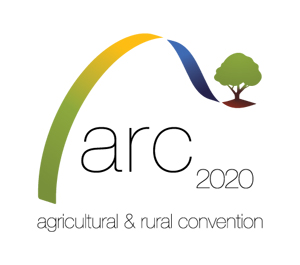PDF version: ARC, FoEE, IFOAM Press Release: 50 years of the CAP
For immediate release: Monday January 23rd 2012
50 years of the European Agricultural Policy: Time for change say civil society groups
Brussels, 23 January 2012 –The European Commission launches its 50th anniversary of the Common Agricultural Policy (CAP) campaign[i] today. However with farmers and biodiversity disappearing, hunger and social inequalities increasing and food safety compromised, civil society groups are calling on the European Institutions to use the ongoing CAP reform to undertake a radical overhaul to make it “fit for the next 50”.
The CAP has traditionally supported the intensification of agriculture to the benefit of large-scale farmers and agri-business. Public opinion however shows strong support for a radical change to support greener agriculture, a shift to local food production and a fairer distribution of subsidies to support smaller farmers[ii].
Samuel Féret from ARC 2020[iii] said: “Despite reaching its 50th year, and undergoing 20 years of reform, the CAP remains unfit for purpose. It’s time for radical change: the European Union needs a more democratic, fairer and greener foundation, that provides European citizens with healthy food, guarantees the sustainable use of natural resources, enhances the environment and ensures a decent livelihood for all farmers”.
European agriculture needs to move away from harmful and counterproductive industrialised farming practices:
- Between 2000 and 2009 the EU-27 lost 3.7 million jobs, a quarter of the active workforce. Only 7 percent of farmers in the EU are under the age of 35 while 1 in 5 about 4.5 million are over the age of 65[iv].
- 30% of livestock breeds are at risk of extinction with six breeds lost each month[v];
- Grassland butterflies and other pollinators are under threat with the European grassland butterfly indicator showing a 70% decline since 1994;
- Since 1996, the land area used to produce soya for the EU feed market is roughly equal to the area of deforestation in Brazilian forests;
- Agriculture is responsible for 10% of the EU’s greenhouse gas emissions, including 75% of the EU’s nitrous oxide (N2O) emissions from fertiliser applications and 49% of the EU’s methane (CH4) emissions;
- The costs for the EU from the excess of nitrogen in the environment is up to 320 billion euro a year, with the livestock sector consuming around 85% of nitrogen in crops harvested or imported into the EU.
- Around 33% of a household’s total environmental impact in the EU is related to food and drink consumption;
- Pigs and poultry are most likely animals to be reared in factory-farm conditions. In 2008 about 60% of the tonnage of antibiotics (active ingredient) sold in the UK was used in the rearing of pigs. Pigs accounted for 80% of doses in Denmark[vi].
Féret added: “After 50 years of support for a failing system, European and national policy-makers need to reconsider. Supporting short-term productivity is clearly not the right path. The time has come for European decision-makers to put their support behind ecological and multifunctional agricultural practices that are proven to maintain jobs on farm holdings, produce the most sustainable yields, protect and enhance water bodies, soil fertility and biodiversity”.
ENDS
[i] European Commission, 2012. Interinstitutional event on the launching of the 50th anniversary of the Common Agricultural Policy http://europa.eu/eucalendar/event/id/303052-interinstitutional-event-on-the-launching-of-the-50th-anniversary-of-the-common-agricultural-policy/mode/standalone
[ii] European Commission, Special Eurobarometer 368: The Common Agricultural Policy: http://ec.europa.eu/public_opinion/archives/ebs/ebs_368_en.pdf.
[iii] ARC, the Agricultural and Rural Convention 2020, was created in early 2010 as a platform to enable concerned citizens and their organisations to advocate a sustainable reform of the Common Agricultural and Rural Development policies of the European Union. Active within the platform is a wide array of civil society organisations, at European, national, regional and local level. They represent a great variety of interests, including human rights, farmers, consumers, rural communities, nature protection, cultural heritage, animal welfare, minorities, public health and organic food, including Friends of the Earth Europe (FoEE) and the International Federation of Organic Agriculture Movements (IFOAM) EU Group.
[iv] European Commission, 2010. Developments in the income situation of the EU agricultural sector http://ec.europa.eu/agriculture/rica/pdf/hc0301_income.pdf; Eurostat, 2010. Agricultural statistics Main results 2008–09 http://epp.eurostat.ec.europa.eu/portal/page/portal/product_details/publication?p_product_code=KS-ED-10-001
[v] IFOAM EU Group, FoEE et al., 2011, The Truth Behind the CAP: 13 reasons for green reform http://www.ifoam-eu.org/workareas/policy/php/factsheets/CAP_Factsheets_en.pdf.
[vi] Alliance to Save Our Antibiotics. 2011, Case Study of a Health Crisis: How human health is under threat from over-use of antibiotics in intensive livestock farming



